'The total confusion about post-Brexit rules adds to the distress': classical musicians speak out | reviews, news & interviews
'The total confusion about post-Brexit rules adds to the distress': classical musicians speak out
'The total confusion about post-Brexit rules adds to the distress': classical musicians speak out
Ten players and administrators on the fallout in government restrictions to EU touring
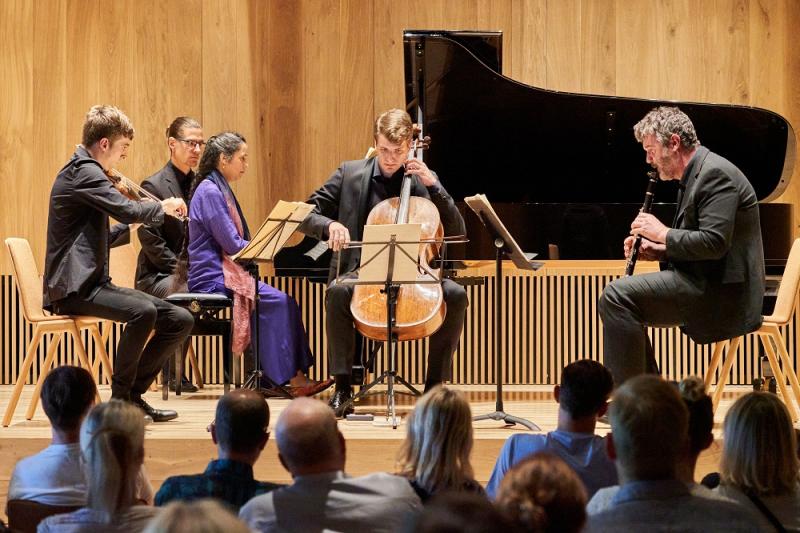
“Fuck business,” Boris Johnson is alleged to have said while Foreign Secretary. (He didn’t deny it). We have seen enough over the past three weeks of the impact of Brexit on fishermen, hauliers, wine merchants and a host of business people to know that he wasn’t joking.
What of the impact on musicians?
Some politicians and members of the public seem to believe that when we’re touring we’re on a kind of permanent holiday. We’re not. Music is one of the UK’s most successful exports. Yet the (cleaner but offensive in a whole new way) language used by Johnson in this “clarification” implies a kind of “reciprocal holiday agreement”: “visiting musicians may perform at events, make personal appearances, take part in competitions, promotional activities and auditions for up to six months without the need for formal sponsorship or a visa if they are not being paid beyond expenses or prize money”.
UK musicians are not on holiday, paid or unpaid (more often the latter at the moment). This is their job, which they need to do in order to pay the bills. The profession of music is their livelihood, of which they are suffering an immediate and long term loss as a direct result of the Brexit “agreement”. Coming after - and alongside - the death-by-a-thousand-cuts of Covid restrictions this is the final blow for many. Here are the statements of some of them.
 Samuel Staples, violinist (pictured left by Alexa Kit-May)
Samuel Staples, violinist (pictured left by Alexa Kit-May)
I am a recent music college graduate and I work as a freelance violinist, largely in the UK. After having all concert engagements cancelled due to Covid, including a trial with a major UK orchestra, I hadn’t performed for a number of months, so I was delighted when I was offered over two months’ work with an orchestra in Spain that through a rigorous testing programme and a large amount of state funding was still continuing to perform to restricted audiences.
Having taken part in two concerts there in December (without the need for a permit), I decided to stay in Spain until my next engagements at the beginning of February to avoid unnecessary travel, both for my own and my colleagues’ well-being as well as concerns about not being allowed back into Spain after the emergence of the new Covid strain.
Having always been assured that obtaining permits wouldn’t be an issue for musicians, I found it increasingly apparent throughout January that the orchestra was struggling to acquire me the right paperwork to process my contract. Still confident that we could get it resolved if we worked together, I avidly researched artistic permits, contacted the British embassy in Spain, the Spanish embassy in London, all to no avail. I am yet to receive a reply from the Spanish consulate in London regarding a work permit. Our correspondence started well over two weeks ago, almost a month before my first rehearsal with the orchestra in February.
When it became apparent that neither the orchestra’s or my attempts were going to get me the appropriate paperwork in time, I received an email informing me that they had to now begin looking for a replacement player, and therefore my services were no longer required and I returned to my home in London. I in no way hold the orchestra I was working with responsible; they were both extremely helpful in attempted to get me a permit and unreservedly apologetic when it wasn’t possible.
For a musician at this time, the loss of that quantity of work is a huge blow, and not just financially. The chance to make music consistently again after such a long time was as much of a factor in deciding to take the contracts as earning money, and losing that is actually the greater disappointment.
This is not the first time Brexit has made its presence felt in my career and I doubt it will be the last. Only a few months ago I was informed by two different European orchestras that I had applied for that I wasn’t eligible to audition for the vacant positions as I didn’t possess an EU passport.
It seems that going forward the best we can hope for is clarity; whatever is or has been agreed upon, musicians and all performing artists need to know. And we need to know soon.
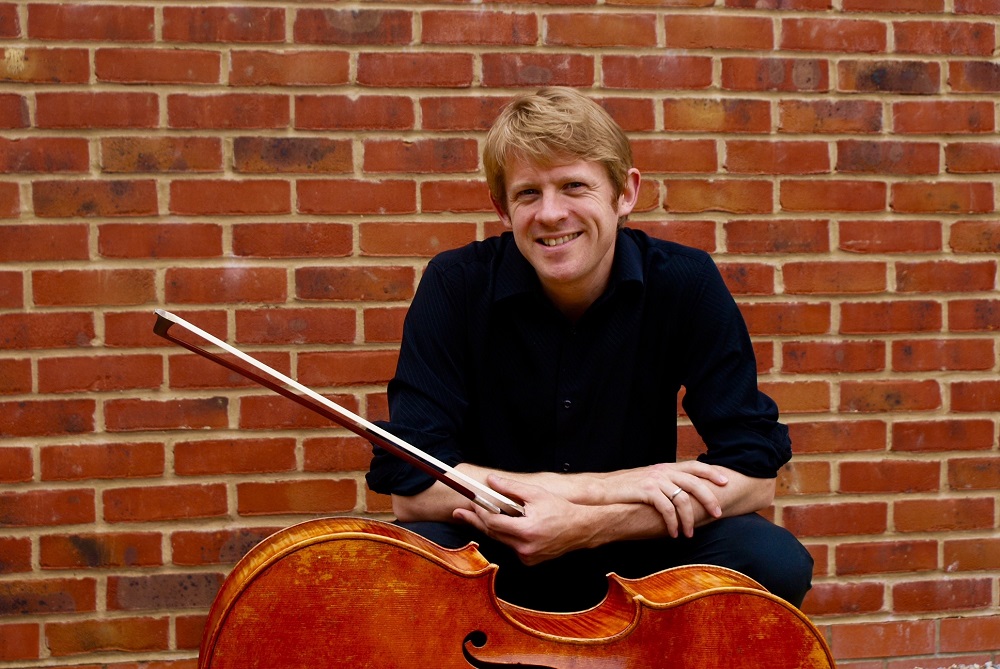 Robin Michael, cellist with Orchestre Les Siècles (pictured right by Aliye Cornish)
Robin Michael, cellist with Orchestre Les Siècles (pictured right by Aliye Cornish)
I’m with Les Siècles in France on average around 150 days a year and then there is the other touring I do with groups such as Orchestre Révolutionnaire et Romantique and Cecilia Bartoli’s group Les Musiciens du Prince.
As it is, 90 days visa free in France will in no way cover me for my job and already I am in bureaucratic muddle for a live transmission from La Scala with Bartoli in a fortnight. No one can tell me if I need a visa (the website says yes), nor from whom or how I can obtain this.
I’ve already been asked to do a concert in Halle in Germany in a few months with the proviso that I’ll need to go to the German embassy in the UK to obtain this; yet every day for the month beforehand I’m due to be working at Opera Lille (if it’s not cancelled of course). This is in the time of a pandemic where most things are cancelled so what on earth will it be like when things start to get back to being reprogrammed?
Yes, I’ve applied for a carte de séjour in France and would happily settle there but my boys are at school in London, happy and settled and my former status as European citizen allowed this state of affairs to function smoothly.
Speaking of education; what of the impact on this until now lucrative sector?
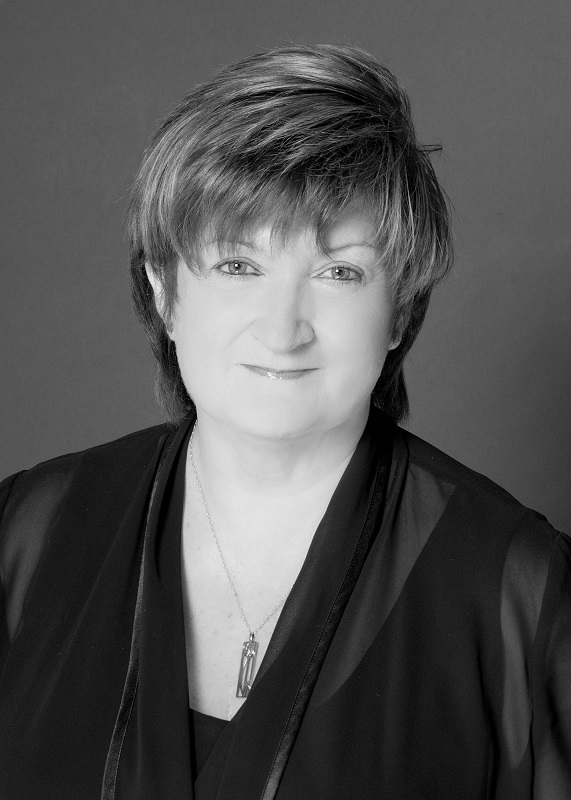 Clare Thompson, Violin Professor at Trinity Laban Conservatoire of Music and Dance (pictured left)
Clare Thompson, Violin Professor at Trinity Laban Conservatoire of Music and Dance (pictured left)
The UK government has recently confirmed that all EU/EEA students will lose their home fee status from Autumn 2021 and will have to pay full tuition fees. This will be an overwhelming financial deterrent for any students from normal backgrounds wishing to benefit from the excellent musical training available here. They will naturally seek cheaper but equally renowned alternatives in the EU. The result will obviously be detrimental to UK institutions, with the loss of motivated musicians and the destruction of a vital context for music’s function as international language. The rich cultural exchange that’s so beneficial to both British and foreign students will be stymied and ultimately it will be our students who will sadly come off the worst.
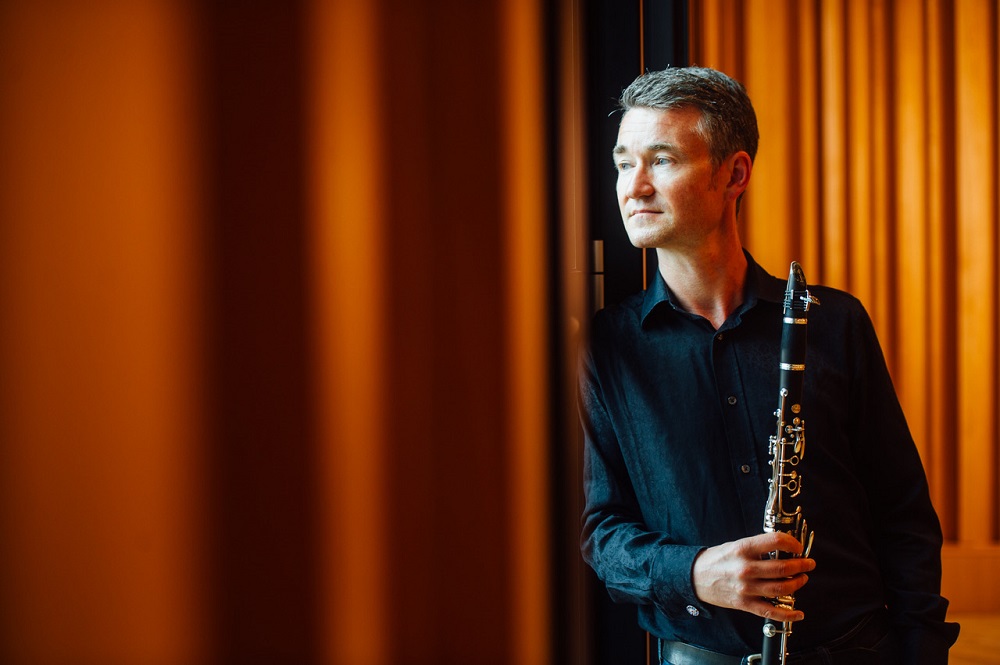 Robert Plane, Head of Woodwind Performance at the Royal Welsh College of Music and Drama (pictured right by Jake Morley)
Robert Plane, Head of Woodwind Performance at the Royal Welsh College of Music and Drama (pictured right by Jake Morley)
I think the education sector has been overlooked even more than other areas. It’s already having an impact on attracting EU students to study at RWCMD, now that they’re facing fees of £21,000 a year rather than £9,000. I have a very talented applicant from Poland desperate to come to the UK but obviously, financially her best option now is to study in the EU. This, combined with the long-term scaling back of music services and music in schools in the UK, will result in a dearth of musicians in the future and this country’s reputation as a world leader in the arts will suffer hugely. We absolutely have to have a visa waiver or long term visa across the EU for performing artists, or musicians in this country will likely be so disadvantaged by all the extra admin, time and expense required to be able to tour.
 Aliye Cornish, violist and Chief Executive Officer of the Irish Baroque Orchestra, writing here in a personal capacity (pictured left by Miriam Kaczor)
Aliye Cornish, violist and Chief Executive Officer of the Irish Baroque Orchestra, writing here in a personal capacity (pictured left by Miriam Kaczor)
The government's failure to safeguard freedom of movement in its post-Brexit trade deal with the EU is nothing short of a scandal. The creative industries generate over £100bn per year for the British economy, making them the second highest-earning sector of industry, behind the financial services. Freedom of movement has been a significant, pulsing artery within the sector and with its severance the industry now stands in serious peril, having had a matter of days to prepare in between the bill being passed and its implementation.
The main issues now facing musicians are:
- different regulations for each country of the EU
- paperwork for instruments
- carnets for equipment
Prior to Brexit musicians were able to travel across borders with very little bureaucracy. An A1 certificate submitted to an organisation in the EU demonstrated that you paid National Insurance in the UK so would be exempted from social security deductions in your host country. Now there is so much additional paperwork to consider, and most of it carries a fee.
Will a UK musician who works regularly with an orchestra in Germany continue to be booked if that musician needs a work permit? The orchestra could book them and face the wait for the paperwork to come through. Or they could book a musician who doesn't carry the same level of bureaucracy.
And what about festivals in the EU who want to bring over an orchestra from the UK? The arts sector is in a difficult position across the world due to the global health crisis. When it comes to maximising resources a line of best fit has to be drawn between quality and cost. Smaller groups who rely on touring for their income who stand to be severely disadvantaged.
As CEO of an orchestra based in Ireland I have already had to look at a date in the UK early this year and concluded that there simply wasn't enough time to process bringing in any players from outside of the UK and Ireland. Our Irish players are, happily, protected by the Common Travel Area which allows for free movement between the UK and Ireland. Any ambitions that we might have for future UK engagements, however, will now carry extra budget for players based in the EU 26.
The ramifications look to be severe, and it's time that the UK government looked at this very carefully. Being committed to an ideology of closed borders is one thing, but to wilfully shut down an industry where so many have already fallen through the cracks in the government's Covid support is quite another.
On the latter subject, while some venues and a proportion of grateful individuals did receive government grants, many have had absolutely no source of income for ten months.
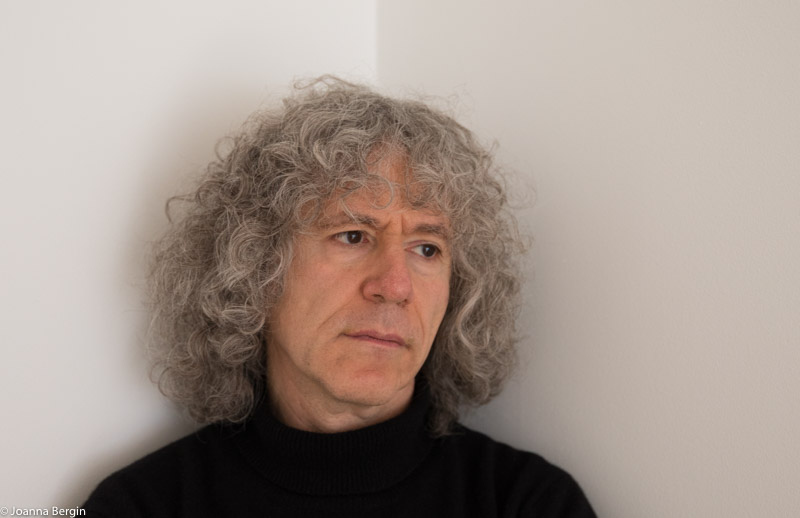 Steven Isserlis CBE, cellist (pictured right by Joanna Bergin)
Steven Isserlis CBE, cellist (pictured right by Joanna Bergin)
A year ago, we were reading about the new virus in China, felt every sympathy for people in China locked out of normal life, and experienced a certain feeling of unease about our own prospects. Nobody I know, however, had the slightest idea that within a couple of months, the entire world would be brought to its knees. For musicians, it has been as disastrous, perhaps, as for any profession outside the medical world. I don’t want to harp on too much about my own experiences, because I know that compared to so many, I am still in a fortunate position (and I’m still alive!); but I have had maybe 80 concerts cancelled so far, with more disappearing every week.
Luckily, I had built up savings; but alas they are pretty much gone now, and I am borrowing from kind friends (again, I know I’m fortunate to have them) in order to pay a tax bill that has just arisen, from a particularly good year two years ago. For young musicians in particular, this is a particularly calamitous time - either for those who were just starting on a career, now shredded to ruins, or for others entering a vital period of study. The total confusion about post-Brexit rules is just adding to the heart-sinking distress. I for one have lost no time in applying for foreign citizenship in addition to my British one. I’ll be delighted if it works - but how many have this possibility? We really need clarity and intelligent understanding if our profession is to weather this storm.
 Catherine Martin, violinist (pictured left by Andrew Staples)
Catherine Martin, violinist (pictured left by Andrew Staples)
My main work is as leader of the Gabrieli Consort and Players. However, I started a part-time delivery job in August, driving vans for Waitrose. When the pandemic started last March, I thought we might be out of work for a year. Looking at my diary now, I am in despair about whether I will ever be able to earn a living as a performing musician again.
Over the last ten years, I have been going regularly to Malta, Germany and Norway. I am booked as a guest leader, sometimes director, and the groups that book me are small-scale chamber orchestras or chamber groups. I estimate that I was making about half of my living as a performer from this sort of work in mainland Europe. I don't think that this work will ever come back for me; many of these groups are run by one or two people, and they are unlikely to spend time and money in procuring a visa for me when they could ring up someone from another EU country who can come hassle-free.
The UK orchestras that I work for have also almost nothing in the diary. We have had so little information about how we are going to be able to work in other countries that the promoters are not booking British groups. I have 5 concerts in my diary in the next year, most of which are unconfirmed. In the year 2019-20 I did in excess of 60 concerts and several recording projects.
I fear that Brexit will mean the end of many players' careers.
 Maarit Kangron, cellist, former Artist Manager for IMG Artists in London and now Chief Executive Producer/Artistic Director of Eesti Kontsert, Estonia’s state funded concert agency. Maarit is heavily involved in artistic planning and the booking of international soloists and orchestras such as the UK’s Royal Philharmonic Orchestra, which was welcomed to Tallinn in 2016, and the London Symphony Orchestra which toured there in 2009 (pictured right by Kaupo Kikkas)
Maarit Kangron, cellist, former Artist Manager for IMG Artists in London and now Chief Executive Producer/Artistic Director of Eesti Kontsert, Estonia’s state funded concert agency. Maarit is heavily involved in artistic planning and the booking of international soloists and orchestras such as the UK’s Royal Philharmonic Orchestra, which was welcomed to Tallinn in 2016, and the London Symphony Orchestra which toured there in 2009 (pictured right by Kaupo Kikkas)
It is absolutely crucial to know the exact and clear work visa process and costs for UK musicians working in the EU. European concert halls and festival organisers are eagerly awaiting detailed information on this matter. As we are all planning several years ahead, we need this information now for our advance scheduling work. Although we all certainly look up to the phenomenal musicians from the UK, if the paperwork is made lengthy and expensive, it will start affecting our artistic decisions.
 Mark Pemberton, Association of British Orchestras (pictured left)
Mark Pemberton, Association of British Orchestras (pictured left)
While we fully understand the anxiety and anger that many musicians feel about the impact that Brexit will have on their working lives, we feel it important to take a deep breath and analyse what the facts actually are. The ABO had always expected musicians to be subject to work permit rules in each of the EU27 nations, not least because we knew that the EU could not interfere in the sovereign power each nation has over its immigration policy, and any exemption would have to apply to all “non visa nationals”, not just UK nationals. The good news is that some EU countries already offer an exemption for performers, along the lines of the UK’s Permitted Paid Engagement. The bad news is that others don’t, including some countries that are on the regular touring circuit. What we now need to do is persuade those countries to adopt the enlightened approach of their peers. We also need to find solutions to some of the other challenges the FTA has thrown up, including carnets and cabotage limits.
Explore topics
Share this article
Add comment
The future of Arts Journalism
You can stop theartsdesk.com closing!
We urgently need financing to survive. Our fundraising drive has thus far raised £49,000 but we need to reach £100,000 or we will be forced to close. Please contribute here: https://gofund.me/c3f6033d
And if you can forward this information to anyone who might assist, we’d be grateful.

Subscribe to theartsdesk.com
Thank you for continuing to read our work on theartsdesk.com. For unlimited access to every article in its entirety, including our archive of more than 15,000 pieces, we're asking for £5 per month or £40 per year. We feel it's a very good deal, and hope you do too.
To take a subscription now simply click here.
And if you're looking for that extra gift for a friend or family member, why not treat them to a theartsdesk.com gift subscription?
more Classical music
 Helleur-Simcock, Hallé, Wong, Bridgewater Hall, Manchester review - moving lyricism in Elgar’s concerto
Season opener brings lyrical beauty, crisp confidence and a proper Romantic wallow
Helleur-Simcock, Hallé, Wong, Bridgewater Hall, Manchester review - moving lyricism in Elgar’s concerto
Season opener brings lyrical beauty, crisp confidence and a proper Romantic wallow
 Kohout, Spence, Braun, Manchester Camerata, Huth, RNCM, Manchester review - joy, insight, imagination and unanimity
Celebration of the past with stars of the future at the Royal Northern College
Kohout, Spence, Braun, Manchester Camerata, Huth, RNCM, Manchester review - joy, insight, imagination and unanimity
Celebration of the past with stars of the future at the Royal Northern College
 Jansen, LSO, Pappano, Barbican review - profound and bracing emotional workouts
Great soloist, conductor and orchestra take Britten and Shostakovich to the edge
Jansen, LSO, Pappano, Barbican review - profound and bracing emotional workouts
Great soloist, conductor and orchestra take Britten and Shostakovich to the edge
 Jakub Hrůša and Friends in Concert, Royal Opera review - fleshcreep in two uneven halves
Bartók kept short, and a sprawling Dvořák choral ballad done as well as it could be
Jakub Hrůša and Friends in Concert, Royal Opera review - fleshcreep in two uneven halves
Bartók kept short, and a sprawling Dvořák choral ballad done as well as it could be
 Hadelich, BBC Philharmonic, Storgårds, Bridgewater Hall, Manchester review - youth, fate and pain
Prokofiev in the hands of a fine violinist has surely never sounded better
Hadelich, BBC Philharmonic, Storgårds, Bridgewater Hall, Manchester review - youth, fate and pain
Prokofiev in the hands of a fine violinist has surely never sounded better
 Monteverdi Choir, ORR, Heras-Casado, St Martin-in-the-Fields review - flames of joy and sorrow
First-rate soloists, choir and orchestra unite in a blazing Mozart Requiem
Monteverdi Choir, ORR, Heras-Casado, St Martin-in-the-Fields review - flames of joy and sorrow
First-rate soloists, choir and orchestra unite in a blazing Mozart Requiem
 Cho, LSO, Pappano, Barbican review - finely-focused stormy weather
Chameleonic Seong-Jin Cho is a match for the fine-tuning of the LSO’s Chief Conductor
Cho, LSO, Pappano, Barbican review - finely-focused stormy weather
Chameleonic Seong-Jin Cho is a match for the fine-tuning of the LSO’s Chief Conductor
 Classical CDs: Shrouds, silhouettes and superstition
Cello concertos, choral collections and a stunning tribute to a contemporary giant
Classical CDs: Shrouds, silhouettes and superstition
Cello concertos, choral collections and a stunning tribute to a contemporary giant
 Appl, Levickis, Wigmore Hall review - fun to the fore in cabaret and show songs
A relaxed evening of light-hearted fare, with the accordion offering unusual colours
Appl, Levickis, Wigmore Hall review - fun to the fore in cabaret and show songs
A relaxed evening of light-hearted fare, with the accordion offering unusual colours
 Lammermuir Festival 2025, Part 2 review - from the soaringly sublime to the zoologically ridiculous
Bigger than ever, and the quality remains astonishingly high
Lammermuir Festival 2025, Part 2 review - from the soaringly sublime to the zoologically ridiculous
Bigger than ever, and the quality remains astonishingly high
 BBC Proms: Ehnes, Sinfonia of London, Wilson review - aspects of love
Sensuous Ravel, and bittersweet Bernstein, on an amorous evening
BBC Proms: Ehnes, Sinfonia of London, Wilson review - aspects of love
Sensuous Ravel, and bittersweet Bernstein, on an amorous evening
 Presteigne Festival 2025 review - new music is centre stage in the Welsh Marches
Music by 30 living composers, with Eleanor Alberga topping the bill
Presteigne Festival 2025 review - new music is centre stage in the Welsh Marches
Music by 30 living composers, with Eleanor Alberga topping the bill

Comments
Takes two to tango, UK and EU
That, it seems, was at the
That, it seems, was at the root of the UK negotiators' refusal to adopt the EU's 90-day visa-free deal for performers: that Patel and Co don't want the EU's wonderful artists here. Of course the lie was spread that the EU was the one who turned the offer down. That all needs clarifying: we need to see the records.
Delusional I’m afraid. The
What or who do you think is
What or who do you think is delusional? Nothing you've written makes sense to me.
Not sure why the comment
TBC I was responding to a
The original EU offer MUST be
The original EU offer MUST be reinstated, and with enough constant pressure it can and will be. The one thing this weak government does consistently is u-turning. I see even the ultra-Brexiteer MP Bernard Jenkin wants the reinstatement. Admittedly it's because his sisters are travelling classical musicians, but whatever it takes to add pressure...
The Jenkin move, reported on
The Jenkin move, reported on the BBC's news website, turns out to have been from 2017. Still, whatever it takes to try and turn the screw.
I’m not trying to play Debbie
The EU probably hasn't even
The EU probably hasn't even been approached by the UK on this one, so the ball remains in our u-turning government's court. If the Rashford initiative can force a change of policy, so can a concerted effort from performers across the board on this one. But you are right, there have been no shifts on EU related questions so far. Only look at the gobsmacking footage of George Eustice responding in the Commons to an SNP MP's detailed questions on the fishing industry and whether the govt will do anything about the dire straits by getting up, snapping a 'no' and sitting down again. Soon it must reach breaking point.
Read this with mounting
Absolute brainworms that the
The 90 days visa-free won't
I think you're confusing that
I think you're confusing that with the same time offered to working British musicians by the EU, and turned down by the government because it didn't want EU musicians coming to work in the UK on the same terms. This MUST be reversed in yet another vital government u-turn.
I know this mainly about
Indeed, this is a disaster
Indeed, this is a disaster right across the board.
I was recently involved in a
I was recently involved in a panel on these topics run by the conference Jazzahead in Bremen. One of my fellow panellists was very impressive indeed: Ian Smith has been keeping track of these issues for years. Yes the situation is dire, but a website Ian runs has a lot of detailed practical information on the whole visa / carnet issue and how it is being applied across a whole range of countries : http://ukeartswork.info/